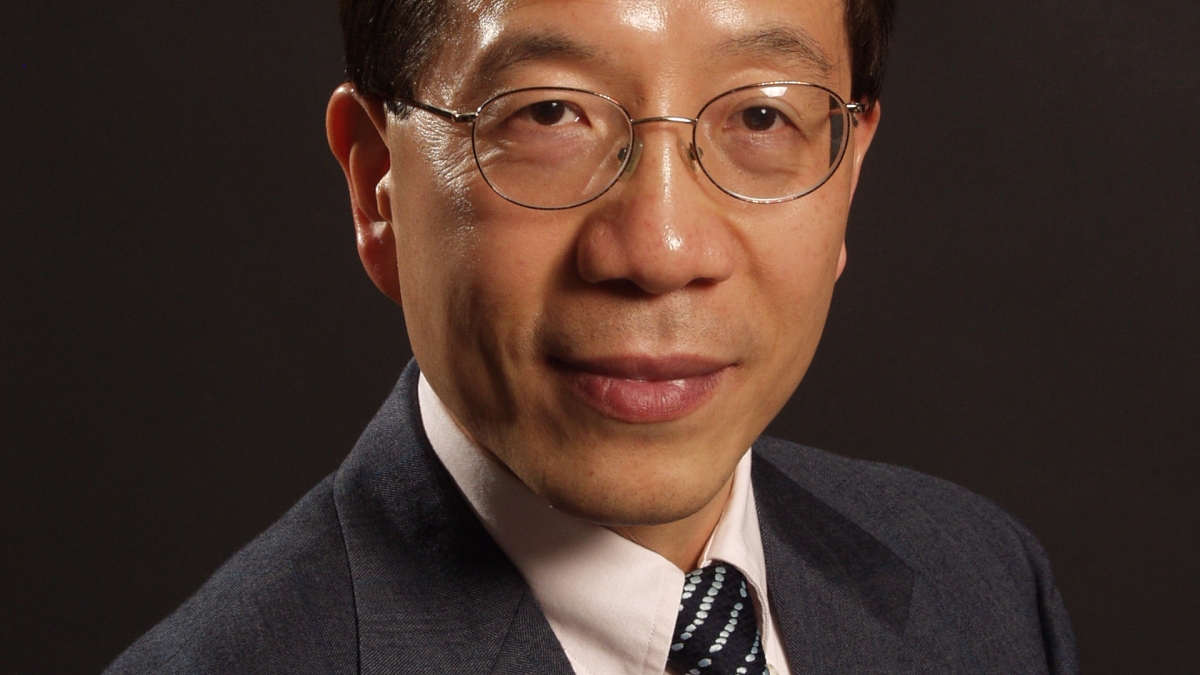ASU professor named to prestigious defense department fellowship

Electrical engineering professor Ying-Cheng Lai has been named to a prestigious Department of Defense fellowship.
Arizona State University Professor Ying-Cheng Lai has been named a 2016 National Security Science and Engineering Faculty Fellow, the Pentagon has announced.
Professor Lai is one of 15 university faculty scientists and engineers named to the largest and longest single principal investigator basic research grant funded within the Department of Defense (DOD).
As a NSSEFF fellow, Professor Lai joins other research fellows from Stanford, Harvard, MIT and Caltech.
“I am honored to be selected into this special DOD group,” said Lai, ASU professor of electrical engineering. “The NSSEFF will make it possible for me to focus more on research which will center on relativistic quantum nonlinear dynamics and chaos.”
The current NSSEFF cohort comprises 32 fellows — including a Nobel laureate, members of National Academies, five winners of the Presidential Early Career Award for Scientists and Engineers, which Lai received in 1997, and recipients of many other prestigious awards and honors.
“The program awards grants to top-tier researchers from U.S. universities to conduct long-term, unclassified, basic research of strategic importance to the Defense Department,” said Dr. Melissa L. Flagg, deputy assistant secretary of defense for research. “These grants engage outstanding scientists and engineers in the most challenging technical issues facing the department.”
An ASU faculty member since 1999, Lai said he hopes to make noticeable contributions so that the research communities would recognize that Relativistic Quantum Chaos is a new and promising field relevant to a number of disciplines.
The fellows will conduct basic research in core science and engineering disciplines that underpin future DOD technology development, Flagg explained. The new Fellows will also conduct basic research in the areas of neuroscience, nanoscience, novel engineered materials, applied mathematics and statistics, and manufacturing science.
As part of his fellowship, Lai will also participate in the DOD research enterprise and share his knowledge and insight with DOD military and civilian leaders, researchers in DOD laboratories, and the national security science and engineering community.
The fellowship will last for five years. Upon successful completion of negotiations between their academic institutions and DOD research offices, grant awards will be made to the faculty members’ home institutions for support of their research.
In 1997, Lai received the Air Force Presidential Early Career Award for Scientists and Engineers (PECASE) from the White House. In the same year, he also received the Faculty Career Award from the National Science Foundation. In 1999, was elected as a Fellow of the American Physical Society with the citation: "For his many contributions to the fundamentals of nonlinear dynamics and chaos."
Written by Judy Keane
More Science and technology

Cracking the code of online computer science clubs
Experts believe that involvement in college clubs and organizations increases student retention and helps learners build valuable…
Consortium for Science, Policy & Outcomes celebrates 25 years
For Arizona State University's Consortium for Science, Policy & Outcomes (CSPO), recognizing the past is just as important as…

Hacking satellites to fix our oceans and shoot for the stars
By Preesha KumarFrom memory foam mattresses to the camera and GPS navigation on our phones, technology that was developed for…